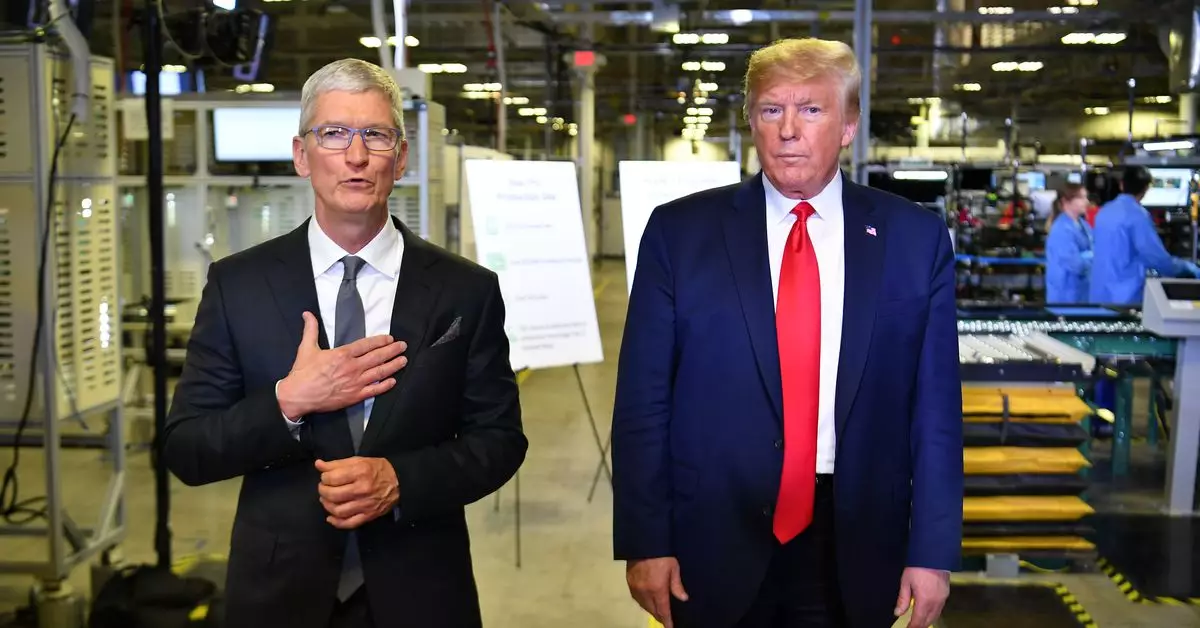In the ever-evolving intersection of technology and governance, forging relationships with political figures has become increasingly vital for CEOs of major corporations. A notable example is Tim Cook, the CEO of Apple, who successfully built a connection with former President Donald Trump during his administration. This relationship, crafted through personal engagement rather than traditional lobbying methods, highlights an intriguing strategy in the realm of corporate diplomacy.
The Unique Approach of Tim Cook
What distinguishes Cook’s strategy is his prioritization of direct communication over formal channels. Unlike many of his contemporaries who utilize teams of lobbyists and government relations executives, Cook opted for a more personal touch. According to reports, he engaged Trump through direct phone calls and dining together, allowing for a more informal and open dialogue. This method not only heightened the authenticity of their interactions but also led to productive discussions on critical topics ranging from tax policies to tariffs affecting Apple’s operations.
By strategically selecting key data points to discuss, Cook maintained focus during their meetings. This focused approach curtailed the potential for conversations to derail into unrelated issues, ensuring that the dialogue remained productive. Such intentionality in communication underscores how a clear understanding of mutual interests can pave the way for significant corporate benefits—in Apple’s case, favorable tax structures and tariff negotiations that bolstered its market position.
The Implications of Personal Relationships in Business
Cook’s relationship with Trump offers a blueprint for other corporate leaders seeking influence in political arenas. The significance of mutual interests cannot be overstated; Cook zeroed in on issues aligning with both Apple’s goals and Trump’s policy agenda. This synergy not only benefited Apple but also allowed Trump to demonstrate tangible achievements, thereby facilitating a win-win scenario. The Wall Street Journal has noted that various business leaders from companies like Boeing and FedEx are now attempting to emulate Cook’s approach, attempting to secure favorable outcomes through personal connections.
However, this trend also reveals a concerning undercurrent in corporate governance. The reliance on personal relationships and flattery raises questions about the integrity of corporate communication and the ethical implications of such actions. As leaders like Sundar Pichai and Mark Zuckerberg have also sought Trump’s favor through personal calls, one must wonder how much of corporate governance is becoming entangled with personal allegiances rather than policy advocacy grounded in ethical considerations.
Tim Cook’s success in navigating the complexities of political interaction through personal relationships illustrates both the opportunities and challenges inherent in this approach. While the strategic engagement has proven fruitful for Apple, it simultaneously invites scrutiny regarding the fairness and transparency of corporate lobbying practices. As more tech leaders strive to emulate Cook, it is crucial for them to consider the implications of their strategies, ensuring that they balance personal influence with a commitment to ethical governance and accountability. In a world increasingly dominated by personal connections, the question remains: how much personal touch is too much when it comes to corporate power and accountability?

